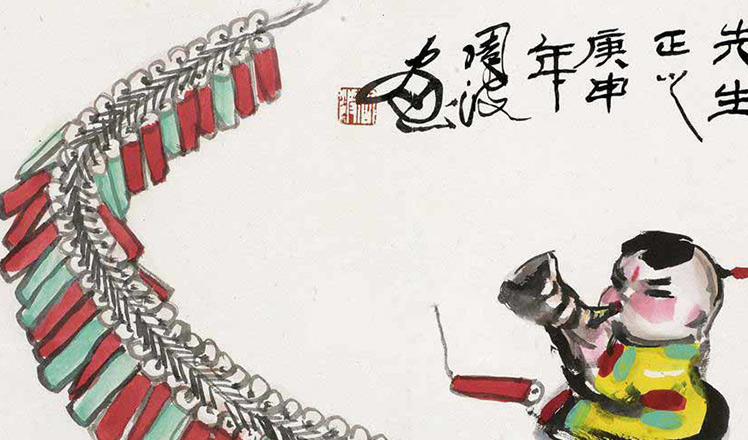Going far beyond words
Updated: 2016-01-08 08:08
By Raymond Zhou/Yang Yang(China Daily)
|
||||||||
The obstacles encountered can be uniquely Chinese, he says. The lack of distinction between the sounds "l" and "n", for example, pervades many parts of China. A Chinese teacher knows how to fix it "in one stroke" - an ability only someone who teaches thousands of Chinese can grasp.
Mei has been with Beijing Foreign Studies University throughout his career. The prestigious school's alumni are now pillars of China's diplomatic structure, among other important fields.While proud of them, he says a school education can only lay a foundation. Whether they ultimately become interpreters for senior leaders or executives for international businesses will depend on many factors, he adds, which include opportunities, the ability to adapt and change direction - and chance.
Switching from language as a tool to the study of all things American, Mei, who is director of BFSU's American Studies Center, is often consulted on news events, such as the upcoming presidential election.
Speaking of Donald Trump, the Republican front-runner, he says populism is indeed on the rise in the US.
"When liberalism reaches an extreme, conservatism comes out in response. This happened when Ronald Reagan was first elected to the White House. The urge for change has carried on to the present day. The public is fed up with the establishment."
However, an edge at this stage for Trump does not translate into a similar lead next summer, he cautions.
"It's still early to reach a conclusion as to who will win. But the sentiments for someone singing a different tune definitely say something about what's happening in that country."
When it comes to possible changes in the US' China policy, Mei says that any incoming US president will have to be "pragmatic" once he or she takes office.
- A glimpse of Spring Rush: little migrant birds on the way home
- Policy puts focus on genuine artistic students
- Police unravel market where babies are bought, sold as commodities
- More older pregnant women expected
- Netizen backlash 'ugly' Spring Festival Gala mascot
- China builds Mongolian language corpus
- 2 Chinese nationals killed, 1 injured in suspected bomb attack in Laos
- New York, Washington clean up after fatal blizzard
- 'Plane wreckage' found in Thailand fuels talk of missing Malaysian jet
- Washington shuts down govt, NY rebounds after blizzard
- 7 policemen, 3 civilians killed in Egypt's Giza blast
- Former US Marine held in Iran arrives home after swap

 Drone makers see soaring growth but dark clouds circle industry
Drone makers see soaring growth but dark clouds circle industry China's Zhang reaches Australian Open quarterfinals
China's Zhang reaches Australian Open quarterfinals
 Spring Festival in the eyes of Chinese painters
Spring Festival in the eyes of Chinese painters
 Cold snap brings joy and beauty to south China
Cold snap brings joy and beauty to south China
 The making of China Daily's Tibetan-style English font
The making of China Daily's Tibetan-style English font
 First trains of Spring Festival travel depart around China
First trains of Spring Festival travel depart around China
 Dough figurines of Monkey King welcome the New Year
Dough figurines of Monkey King welcome the New Year
 Ning Zetao, Liu Hong named China's athletes of the year
Ning Zetao, Liu Hong named China's athletes of the year
Most Viewed
Editor's Picks

|

|

|

|

|

|
Today's Top News
National Art Museum showing 400 puppets in new exhibition
Finest Chinese porcelains expected to fetch over $28 million
Monkey portraits by Chinese ink painting masters
Beijing's movie fans in for new experience
Obama to deliver final State of the Union speech
Shooting rampage at US social services agency leaves 14 dead
Chinese bargain hunters are changing the retail game
Chinese president arrives in Turkey for G20 summit
US Weekly

|

|








